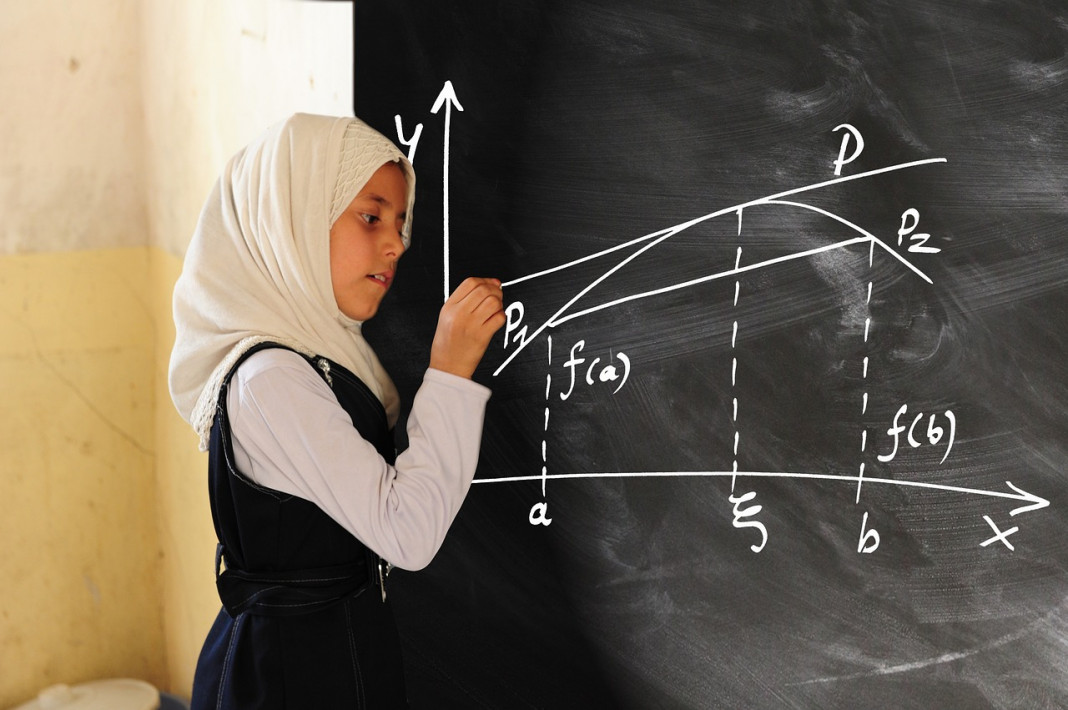My 5-year-old son recently explained to my 3-year-old son that they were two years apart. Three years old plus 2 years old equals 5 years old, he explained.
I was hugely proud of his reasoning and math skills. He hasn’t learned them exclusively at school. His math learning has happened, in part, on a tablet running educational math apps that we’ve found for him. He’s learned addition and subtraction, and as he gets older he’ll be learning even more complex math this way, too.
The most impressive math education app I’ve seen has to be DragonBox Algebra 5+. What impresses me is that its clever design can teach all sorts of complex algebra concepts without making children feel as if they are learning mathematics.
The app is like a game, and it starts at an abstract level: The player has to match small cartoon icons with their matching “dark” alternatives, eventually arranging the pieces on the playing board so that only the magical “box” of the game’s title is left on the board. As the child plays through the levels, the abstract cartoon icons are eventually replaced with numbers and proper mathematical symbols, but with the same gameplay and sound effects.
It’s fun, and the graphics and sound effects are attractive enough to keep children playing. And while they’re playing, they are unknowingly learning some of the same math principles that you need when you’re doing algebra — addition, subtraction, balancing an equation, even concepts like parentheses. Play it yourself and you’ll see how much fun it is.
Perhaps the main drawback to this app is its complicated menus. If you’re going to use it with 5-year-olds, it’s probably best to keep them company so they don’t get frustrated by instructions they cannot read. It is also surprisingly expensive, at $6, but you get over 200 puzzles for your money. The app is on iOS and Android.
The adorable YodelOh Math Mountain app also stays within the learning-through-games genre, but for a more introductory level of math. This app involves a cartoon yodeler who ascends a graphical mountain over time — if he gets to the top, he yodels his way to his doom over the edge. To keep the yodeler from climbing the peak, the player has to answer math questions against the clock.
For example, the question may be “10 x 15 = ?” and the five options are “0, 1, 50, 150, 200.” Tapping the right answer saves the yodeler, whereas taking too long or tapping the wrong answer makes him take a step up the mountain or get butted uphill by a cartoon ram. The idea is that by keeping the entire app lighthearted and full of amusing sounds and images, children do not notice that they’re being tested on their arithmetic skills.
The app offers a less extensive learning experience than DragonBox, but it still has the ability to hone specific math skills because you can choose whether to test just basic subtraction, addition and so on. It’s $3 on iOS and, $2 on Android.
For an alternative app, try Madagascar Math Ops — a game filled with characters from the “Madagascar” cartoon movie franchise. Like Math Mountain, the app has a multiple-choice mental math quiz, but Math Ops has more animation. Winning moves are rewarded with a short in-app game — flying penguin fun that will remind you of Angry Birds. There is a free edition with limited levels on both iOS and Android; the full version costs $3.
For a slightly more traditional route, try MathBoard. It has gamelike elements, but it’s based on a simulated old-fashioned school chalkboard. The app’s screen is split into a quiz area and a work area. In the quiz area, a math puzzle is posed using traditional notation, perhaps something like 47 – 5 = ? Players choose the answer from a list of numbers to solve the puzzle, and they can use the faux chalkboard on the other side of the screen to work out the solution. If they get stuck, a “problem solver” window that shows each stage required to correctly work out the answer can be brought up. It’s like help from a private math tutor.
There are other game options available in this app, like choosing which number is greater than another. Because you can adjust the difficulty of the puzzles, and the problem-solver teaches the player about math, this app is a great way for children to practice their math skills. My chief complaints are that MathBoard could be more fun without distracting from the learning aspects, and that it has a $5 price tag on iOS and Android.
Quick Call
Star Wars: Tiny Death Star may be the most amusing new app to hit smartphones recently. In this game, rich with cute, old-style 8-bit graphics, you have to manage the processes and people of the famous “Star Wars” battle station. Think FarmVille meets Darth Vader. Free on iOS, Android and Windows Phone.


















